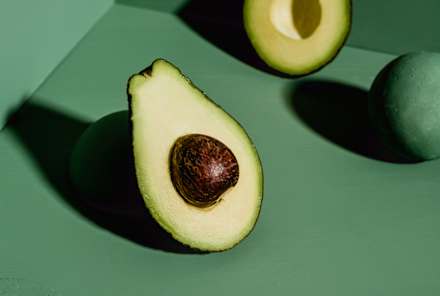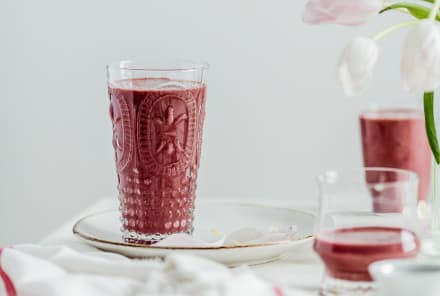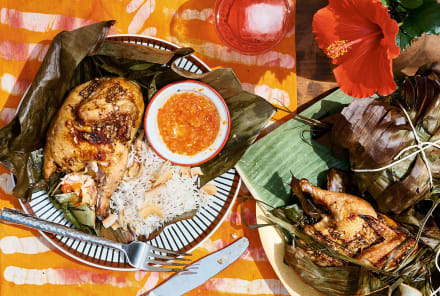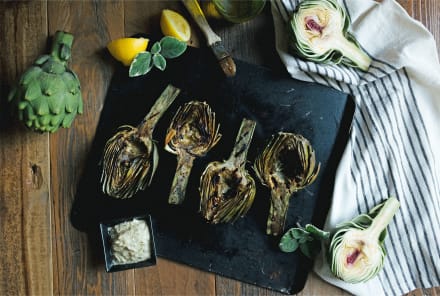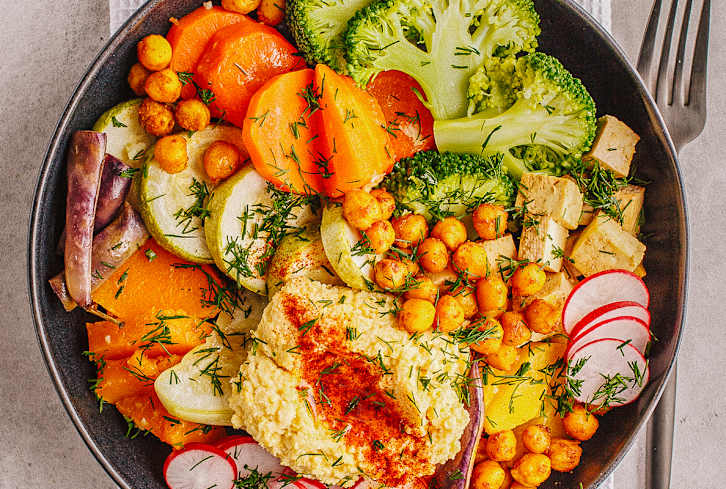Advertisement
5 Foods To Help Protect Against Sun Damage


What you eat determines how firm, radiant and ageless your skin is. It influences the body's ability to make collagen and elastin, dictates how hydrated the skin cells are, and inhibits enzymes that cause wrinkles. Eat the wrong foods and you'll end up with lined, pigmented and sagging skin. Eat the right foods and you'll have clear, luminous and soft skin.
Food can also act as a sun protector, enhancing your sunscreen. Conversely, if you've forgotten to apply sunscreen, food can provide some natural sun protection. On my last beach vacation, I inadvertently applied moisturizer instead of sunscreen, and after spending seven hours in the sun, sans-suncreen, I only ended up with a pink face, which disappeared after 12 hours. Had I not been eating these sun-protecting foods, I would have done significantly more damage to my skin.
Here are five of the best foods to eat to provide natural, healthy sun protection.
Heirloom tomatoes
Heirloom tomatoes are rich in the antioxidant lycopene, which has been shown to reduce UV-induced free radicals by 40-50%. Lycopene is better absorbed with fat, so drizzle the tomatoes with olive oil. You need to eat about a cup to get the skin-protecting benefit. Heirloom tomatoes have more lycopene than conventional tomatoes.
Watermelon
Another great source of lycopene, you need about three cups of watermelon for it to be effective. Eat watermelon as a delicious summer snack with fresh mint and a squeeze of lime.
Bell peppers
Bell peppers contain the antioxidant capsiate, which decreases UVB-induced skin damage and inhibits inflammation from sun exposure. Toss raw bell peppers into a spinach salad. You need a whole bell pepper for it to be effective.
Pomegranate
The polyphenols in the pomegranate seeds protect the skin from both UVA and UVB free radicals. They can enhance the sun protection factor of sunscreen by up to 25% and also inhibit hyper-pigmentation. Snack on the seeds or toss them into a watercress salad. Pomegranate juice is an easy way to get the antioxidants, BUT without the seeds, there's no fiber and the juice converts too quickly to sugar leading to glycation and aging.
Wild salmon
This fish is rich in omega-3 fats, which inhibit inflammation from UVB rays by up to 52%. They also block the release of UV-induced enzymes that eat away at collagen, causing lines and sagging. Enjoy the wild salmon as ceviche or poached over microgreens.




